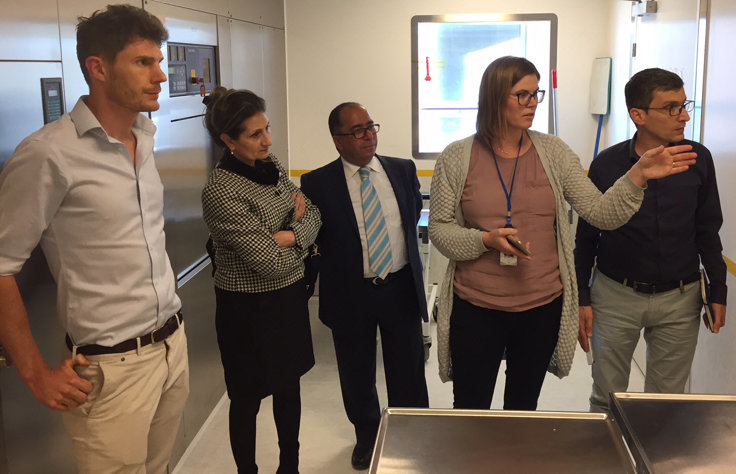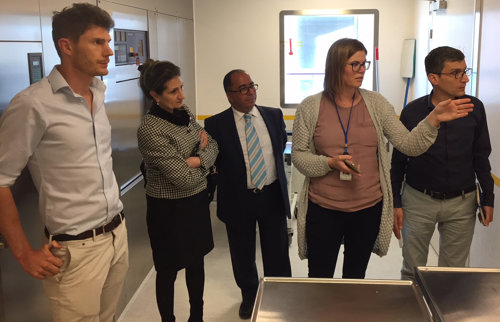Palestinian participation in workshop on health preparedness at NIPH
Article
|Published
A delegation from Palestine visited the Norwegian Institute of Public Health in May for technical meetings as part of the Global Health Preparedness Programme. The visitors were shown how Norway work with health preparedness including risk communication, infection control, disease surveillance and laboratory safety. Experiences were shared between the two countries.
– Sharing experiences in emergency preparedness and other public health issues between expertise in different countries is educational and helpful for both parties, says Bjørn Iversen, Department director of global health at NIPH.
Since 2008, NIPH has been collaborating with Palestinian health authorities, supporting mainly with technical expertise in the process of establishing a national public health institute. Palestine is one of the four partner countries in the Global Health Preparedness Programme, a five-year programme to strengthen global security and preparedness, funded by the Norwegian Development Agency and Ministry of Foreign Affairs.
The delegation consisted of technical experts from the Palestinian Ministry of Health and representatives from the WHO office in occupied Palestinian territory. The aim of the visit was to share experiences on how the health authorities work to prevent, detect and respond to health emergencies and to discuss how Palestine can strengthen health preparedness functions such as surveillance and laboratory capacity to detect outbreaks as part of the Global Health Preparedness Programme.

As part of the three-day workshop 7– 9 May, a visit to the Oslo University Hospital at Ullevål campus was organised to experience how the hospital works with preventing and controlling infections and to see the national competence centre for CBRNe events (events involving Chemical, Biological, Radiological, Nuclear or Explosive materials).
The centre treats people who have been exposed to any of these materials and provides training to medical personnel and first line responders and advice to governmental agencies on medical aspects in serious events.

